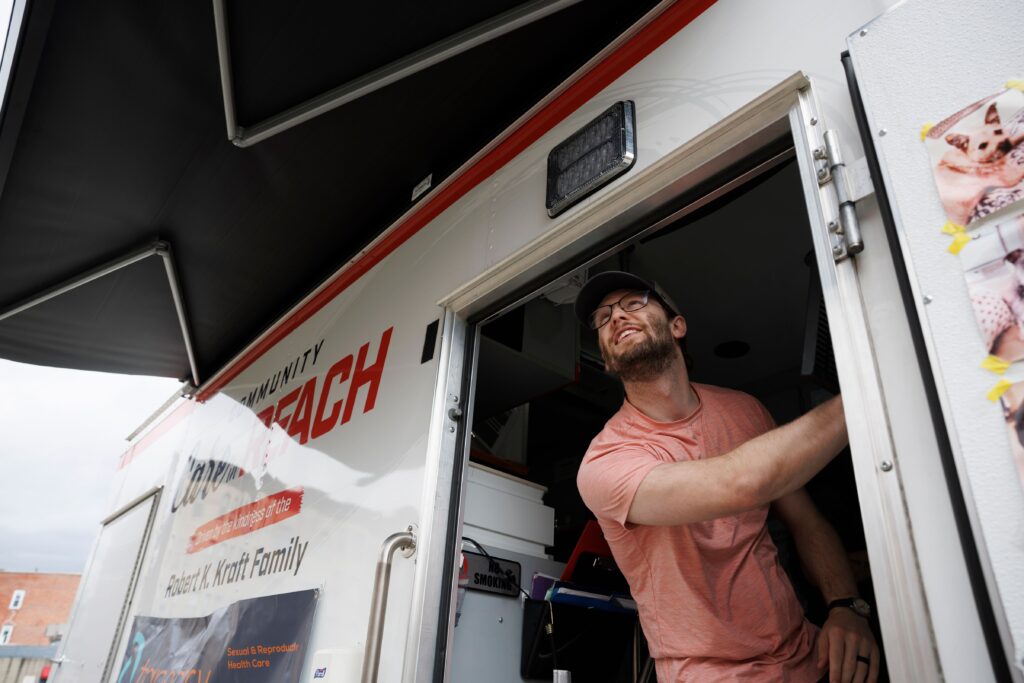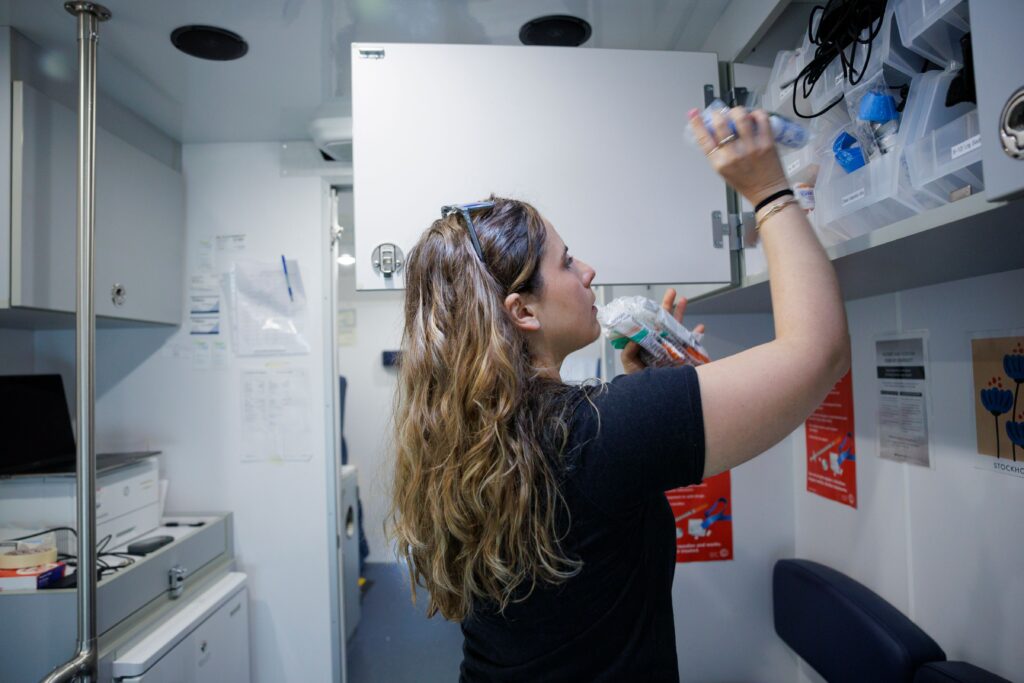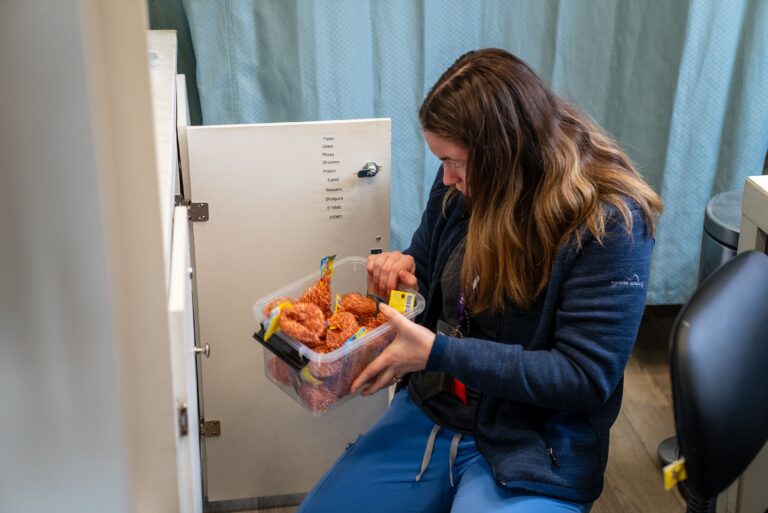The following are one-time costs to accrue the necessary equipment and licensures for operating a mobile medical unit.
Mobile unit—Purchase of the vehicle itself with a medical buildout to suit the needs of the clinical staff. Also, be mindful of legally required signage and vehicle branding.
•Legal support—Consider engaging with a legal support team to assist with required state and federal licensures to operate a mobile medical unit.
•Harm reduction care coordinator and navigator—In addition to participating in outreach and providing harm reduction services, this care coordinator and navigator can help ensure supported referrals for participants and health insurance enrollment. Estimated 1.00 FTE.
•Housekeeper—To ensure weekly cleanings and sanitation of the mobile unit. Estimated 0.01 FTE.
•Other potential staff—Consider adding a behavioral health clinician and/or social worker to support the mental health needs of program participants


Personnel– The following are staffing considerations to operate a mobile unit for six 4-hour clinical sessions weekly.
•Clinical team—May include buprenorphine-waivered MDs, NPs, PAs, or a combination to serve as medical providers on the van, responsible for the initiation and continuation of MOUD for patients, coordination of referrals for patients and assistance with outreach efforts and engaging prospective patients. Estimated total of 0.75 FTE.
•Nurse care manager—In addition to the core clinical team, a nurse care manager can provide administrative support to the development and maintenance of the program as well as assist with coordination of care and referrals. Estimated 0.10 FTE.
•Outreach Workers—Provide outreach, harm reduction services and promote van services among people who use drugs (PWUD). Estimated 1.50 FTE
Non-personnel expenses-The following are regular expenses incurred in a mobile outreach program.
•Medical equipment/supplies
•Naloxone
•Vehicle insurance
•Gas, maintenance and upkeep
•Food for patients
•Patient transportation
•Cell phones
•Sharps/biohazard disposal
Revenue: Incorporate anticipated revenue into budget considerations based on a conservative estimate of average number of clinical visits and reimbursement rates.
Additional optional programming may be beneficial to enhance services on the mobile health program if feasible.
•Tele-behavioral health—Consider equipment, installation fees, trainings and funding of staff coverage to allow for remote consultations with behavioral health staff.
•Drug checking—Consider purchasing fentanyl test strips and other drug-checking equipment to enhance harm reduction services by testing residue on participant’s drug paraphernalia

The MX908 is a portable high-pressure mass spectrometer that uses swabs to test drug paraphernalia for traces of fentanyl. The AHOPE team are evaluating a pilot that was conducted in its drop-in center as they consider a future rollout in mobile settings.
